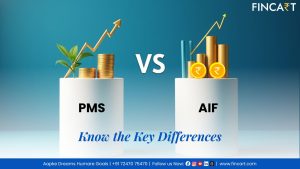Portfolio management services, or PMS, is a type of financial solution designed for individuals who want professional management of their investments. The minimum investment required to avail PMS is Rs. 50 lakh, so it’s suited for high-net-worth individuals, NRIs, and affluent investors looking for a more personalised approach compared to mutual funds. PMS is a SEBI-regulated service and offers mainly two types of models – discretionary and non discretionary portfolio management. Let’s understand discretionary investment management meaning, how it works, and its benefits and risks.
What is Discretionary Investment Management?
Let’s start by understanding the discretionary portfolio meaning. As the name suggests, discretionary PMS means you are giving full authority to a professional portfolio manager to make investment decisions on your behalf. The manager has the discretion or the freedom to make every investment decision, such as which securities to buy or sell, when to make the trades, and how much to allocate to different asset classes. This of course happens within the framework of your agreed investment mandate, so the manager is not going to act totally unchecked. They still have to abide by SEBI’s guidelines and the risk tolerance and financial goals that you agreed upon at the time of onboarding.
A financial advisor may recommend you go for discretionary PMS if you don’t have the time, knowledge, or interest to track markets every day or make constant investment decisions. You can sit back, relax, and have an expert take care of everything.
How Discretionary Investment Management Works
Generally, discretionary portfolio service providers offer pre-defined model portfolios that clients can subscribe to. These models are based on different strategies, asset allocations, and risk tolerances. When you subscribe to one of these models, the provider tells you about the product during the onboarding process, where they explain the asset allocation framework (such as 40% small-cap, 40% mid-cap, 10% large-cap, 10% others), their investment philosophy, the expected investment horizon, and how they plan to respond to market conditions. Investments are then made in listed assets such as mutual funds, stocks, ETFs, real estate, private equity, bonds, and gold which are held in your demat account.
They also assess your risk profile, investment horizon, financial goals, and preferences to ensure that the selected discretionary portfolio aligns with your needs. Once the process is completed, the portfolio manager responsibly manages your investments without needing your approval for each move. Overall, the level of customisation is much higher compared to vehicles like mutual funds.
Expenses Involved
Discretionary PMS can charge different types of fees which you should understand before you commit:
- Management Fees: This is a fixed fee charged by the portfolio manager which is charged regardless of how the portfolio performs. Unlike mutual funds where SEBI mandates an expense ratio cap (for example, 2.25% for equity schemes), there is no such upper limit on management fees in PMS.
- Profit-Sharing Fees: This is also known as performance fees. It is generally charged if the portfolio returns exceed a certain percentage.
- Entry Loads: Some PMS providers charge an upfront fee at the time of initial investment.
- Exit Loads: There is generally no lock-in period in most PMS, but some providers can charge an exit load if you withdraw prematurely.
There are over 450 registered portfolio managers in India, and each offers a range of services. However, details about PMS are not as readily or easily available. Since the minimum investment amount is significant, proper due diligence is essential. An investment consultant can guide you through the options, explain what suits your goals and risk tolerance, and help you pick a PMS that makes sense for you.
Benefits of Discretionary Investment Management
There are many advantages of investing in discretionary portfolio services:
Saves Time
Selecting the right securities demands hours of research, monitoring, and regular portfolio reviews. With discretionary PMS, you don’t have to worry about any of that. Once your investment strategy is finalised, the portfolio manager takes care of the rest, so you can concentrate on more important things in life while a professional helps you work towards your financial goals.
Access To Professional Expertise
Portfolio managers bring years of experience to the table. They analyse stock performance, research market trends, company fundamentals, macroeconomic factors, and changing market conditions to build a portfolio aligned with your goals, risk tolerance, and horizon.
Faster Execution
Because portfolio managers don’t have to wait for your approval on every trade, they can act quickly. Delayed decisions can easily lead to missed opportunities or increased risk. Quick execution helps keep your portfolio aligned with its strategy at all times, saves costs, and optimises risk-return balance.
Reduces Churn
In a discretionary model, the manager can also charge a fee based on the value of your assets. Such a structure discourages unnecessary buying and selling, known as churning. Portfolio churn can erode returns through fees and taxes. Since the manager benefits when your portfolio performs well, your interests are better aligned. The best financial advisor in india can help you compare different PMS strategies, understand fee structures, and ensure your investments stay aligned with your long-term goals.
Risks of Discretionary Investment Management
While discretionary portfolio management offers many advantages, it also comes with some risks and drawbacks that you should consider:
Takes Away Control
By investing in a discretionary PMS, you’re basically handing over complete control of your investment decisions to the portfolio manager. While this saves time and effort, this model may not feel comfortable to you if you prefer having full control over your investments at all times.
Performance Depends On Manager’s Expertise
The success of a discretionary PMS heavily depends on the manager’s skill and experience. You must choose a reputed and well-qualified PMS with a strong track record and a transparent investment process as trust is a major part of discretionary PMS. Certified financial consultancy services can help you select your ideal PMS from the mountain of options available in the country.
Costs Can Be High
Discretionary portfolio management can be expensive due to many costs like management fees, profit-sharing fees, entry loads, and exit loads. All of these can take a good chunk out of your returns. It is crucial to understand the full fee structure before signing up.
High Investment Barrier
PMS requires a minimum investment of Rs. 50 lakh, which makes it inaccessible to most retail investors. In that case, a mutual fund expert will suggest going for mutual funds as they also offer benefits such as professional management and diversification.
Risk of Choosing the Wrong Portfolio Manager
Finding reliable information about PMS on the internet isn’t as easy as it is for mutual funds. If you randomly search for an investment advisor near me and pick someone without proper research, you might end up with a poor recommendation. Since PMS requires a large minimum investment, you can’t afford to take chances. Choosing the wrong advisor could lead to poor returns, high fees, or a strategy that doesn’t suit your financial goals.
Even with a legitimate provider, there’s always a chance that the portfolio manager’s style may not match your needs. That’s why regular reviews and due diligence are so important before investing.
Comparing Discretionary Investment Management with Non-Discretionary Management
We’ve been talking about discretionary portfolio management, but how is it different from non-discretionary PMS? In this type of PMS, the manager does not have the authority to make investment decisions independently. Every buy or sell requires your explicit approval before the manager can execute it. The manager’s job is mainly to advise you.
| Factor | Discretionary Portfolio Management | Non-Discretionary Portfolio Management |
| Decision Making | The portfolio manager makes every decision without approval from the client. | The client must approve every decision before it is executed. |
| Client Involvement | Minimal. | High. |
| Popularity | More popular in India. | Not as popular as discretionary portfolio services. |
| Cost-Effectiveness | More cost-effective. | Expenses may be slightly higher. |
| Investment In Unlisted Securities | Not allowed by SEBI. | SEBI allows investments in unlisted securities as the client approves every trade. |
| Control Over Portfolio | Low. | High. |
Conclusion
Discretionary PMS is a popular service where clients give managers full authority to invest on their behalf. This is a SEBI-regulated product that requires at least Rs. 50 lakh to begin, which is why it is often preferred by HNIs and NRIs. There are several costs involved with discretionary portfolio management services, such as management fees, profit-sharing fees, exit loads, and entry loads, but they are still more cost-effective than their non-discretionary counterparts. Since you’re giving the manager full control over your investments, make sure you trust the portfolio manager’s expertise, integrity, track record, and alignment with your financial goals.
FAQs
Keywords: discretionary portfolio management, discretionary portfolio, registered investment advisor near me
What is discretionary portfolio management?
Discretionary portfolio management service is a type of SEBI-regulated financial service where managers manage your portfolio on your behalf. You give them full authority to manage your funds independently, so once you get onboard, you don’t need to be involved with the decision-making process.
Who should consider discretionary investment management?
The ticket size for availing PMS is Rs. 50 lakh. Accredited investors such as high-net-worth individuals can make use of discretionary portfolio management services. Investors who have busy professional lives or those who don’t want daily involvement in managing their investments can also look into the service. Even NRIs can invest through their NRE/ NRO accounts.
What are the fees associated with discretionary accounts?
Every discretionary portfolio service charges a management fee. Some can even charge entry and exit loads along with a performance-based fee. For example, if your returns exceed a certain percentage, the PMS provider can charge a performance fee on the returns. You should carefully understand the fee structure before onboarding.
How do I choose a portfolio manager?
You can look for portfolio managers by searching for a registered investment advisor near me. You should understand their performance history, relationships with clients, and fee structure before you invest. Check out Fincart’s client testimonial videos and see how our experts help investors achieve their financial goals!




